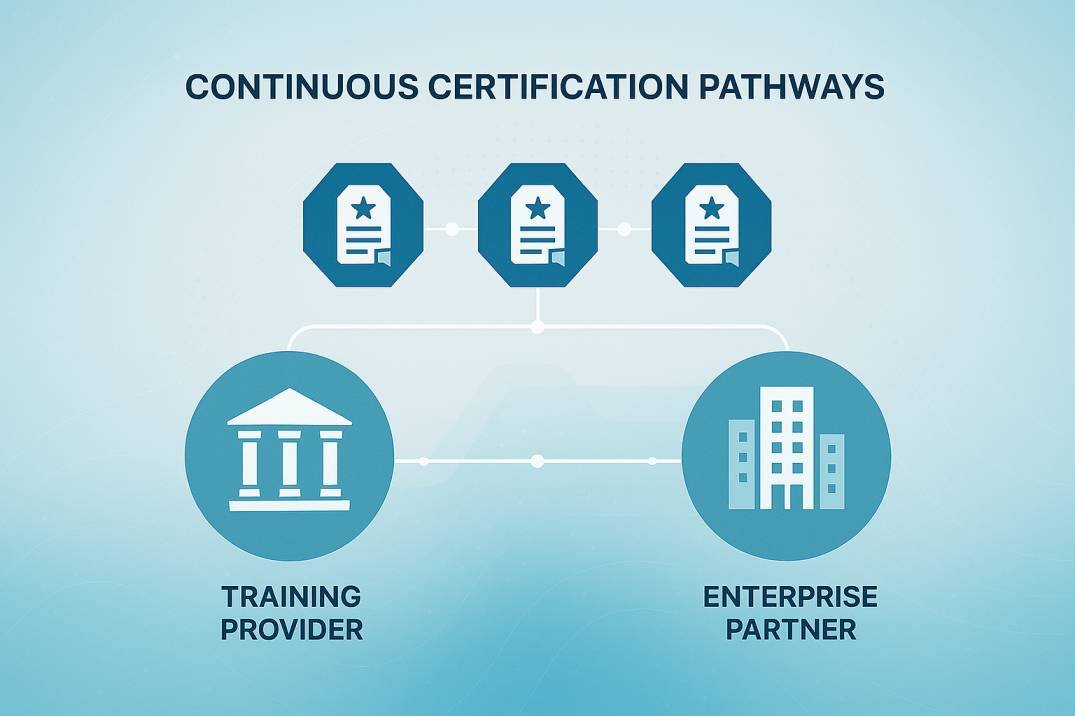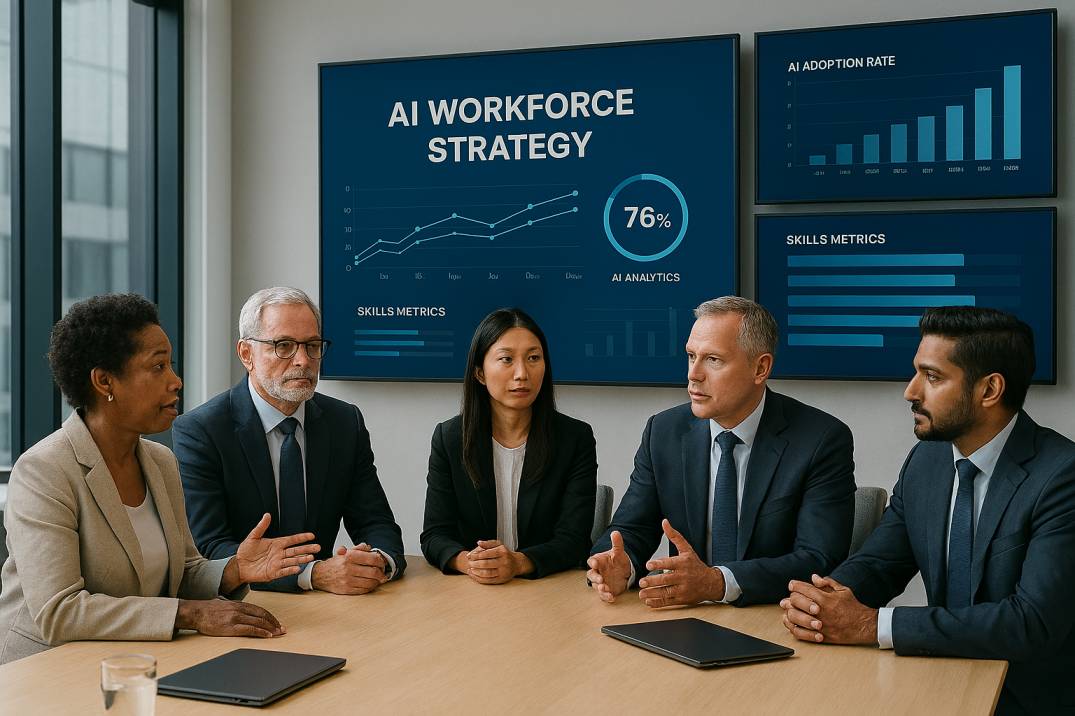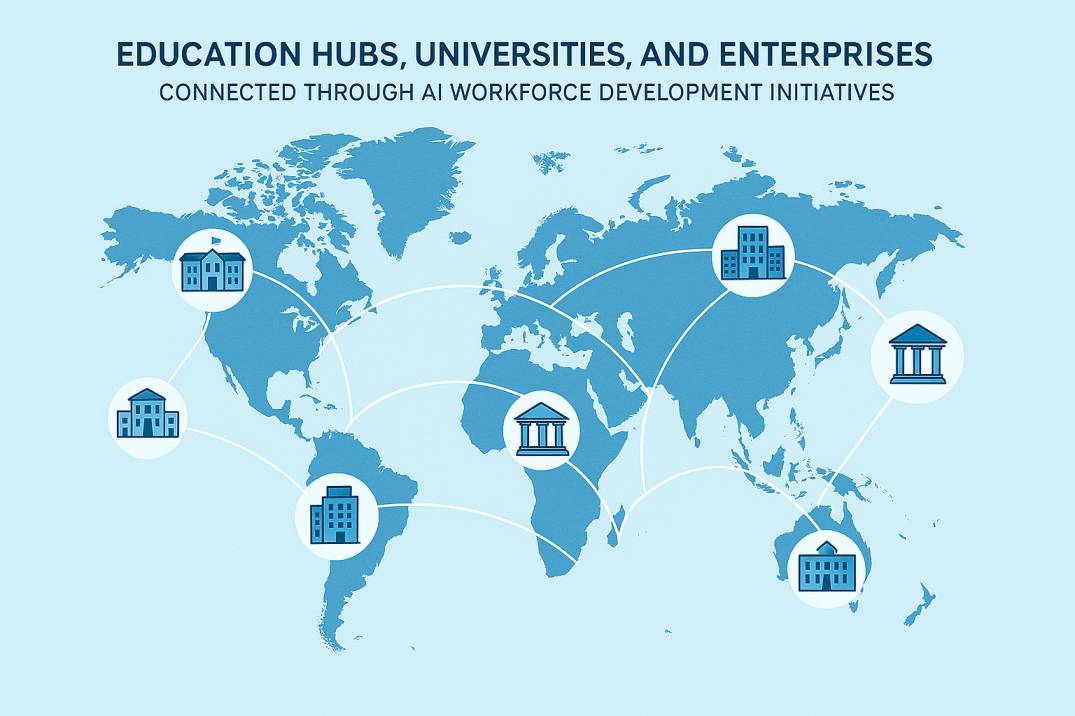AI Supply Hub: Powering Japan’s AI Revolution in Supply Chain and Talent
Introduction
Japan is positioning itself as a global AI powerhouse—and SuperX’s new regional supply center is a sign of just how serious the country’s ambitions are. But what does this mean for AI in the supply chain, and why should professionals specialize in it now?
What the SuperX Initiative Signals for Industry
SuperX’s investment in a supply center in Japan sends a clear message:
1. SuperX’s investment in a supply center in Japan sends a clear message: AI infrastructure is becoming localized and verticalized, not just cloud-driven.
Traditionally, AI workloads have relied heavily on global cloud platforms. By investing locally in Japan, SuperX shows a shift toward localized infrastructure, bringing computing power closer to where data is generated and used. “Verticalized” means this infrastructure is tailored to specific industries or applications, not just generic cloud resources.
2. Supply chain applications are front and center, requiring specialized compute.
Supply chain AI models often deal with real-time tracking, predictive logistics, and optimization of manufacturing flows. These workloads require specialized computing hardware (e.g., GPUs, AI accelerators) that can handle complex data streams quickly and reliably.
3. End-to-end control of hardware, power, distribution, and maintenance is a must for scalable AI.
For large-scale AI operations, depending solely on third parties for each piece of the infrastructure can cause bottlenecks. Controlling the full stack, from physical hardware and power sources to distribution networks and ongoing maintenance, ensures reliability, performance, and scalability.
4. Local talent with AI supply chain skills will be essential to leverage these infrastructure gains.
Even with advanced infrastructure, its value depends on skilled professionals who can design, deploy, and optimize AI solutions in supply chain contexts. Japan’s local talent pool of engineers, AI specialists, and logistics experts will play a critical role in maximizing returns from this investment.
In short, the infrastructure is coming, and the talent must meet it.
Impact on AI in Supply Chain
1. Faster deployment, smoother logistics
Having a supply center in Japan means AI servers and infrastructure can be assembled, customized, and distributed locally. This reduces shipping delays, import hurdles, and inventory bottlenecks. In AI-driven supply chain operations, where every hour of delay can affect forecasting, warehousing, or logistics execution, this speed is invaluable.
2. Localized, reliable hardware
With servers built closer to end markets, Japanese businesses benefit from tailored configurations, faster maintenance, and improved support. For AI supply chain applications such as demand forecasting, route optimization, or robotics control, consistency and reliability of hardware are critical.
3. Scalability at lower cost
Scaling up AI services, like real‑time monitoring of warehouses or predictive stock replenishment, requires massive compute capacity. A high-volume center offering 10,000 AI servers per year brings economies of scale, reducing procurement costs per unit and overall total cost of ownership.
4. Eco‑friendly and energy‑efficient operations
SuperX’s Japan center includes liquid‑cooling and HVDC power solutions, which lower environmental impact and increase energy efficiency. Supply chain operations, especially in manufacturing or logistics hubs, benefit when AI infrastructure aligns with sustainability goals.
Why People Should Learn and Specialize in AI in Supply Chain
Rapid Growth in Demand
As Japanese companies and global partners expand AI within logistics, warehousing, manufacturing, and distribution, there is strong demand for professionals who understand AI algorithms and data flow within the supply chain.
Real-World Impact
It is about improving demand forecasting accuracy, reducing inventory waste, optimizing delivery routes in real time, and automating order fulfillment. Specialists can directly influence cost savings and customer satisfaction.
Competitive Edge
Professionals with skills in AI infrastructure deployment, model integration, data orchestration, and real‑time analytics will be highly sought after. Understanding how hardware choices (like SuperX servers) impact latency, throughput, and reliability gives you a real advantage.
Bridge Between Tech and Operations
AI supply chain is a bridge between digital teams and operations: you’ll work with manufacturing, logistics, and warehouse teams to design, deploy, and monitor AI systems. Those who can speak both languages, AI and operations, are rare and in high demand.
Why Now is the Perfect Time to Specialize
| Opportunity | Why It Matters |
| Emerging ecosystem | As SuperX ramps up AI infrastructure in Japan, demand for supply chain AI talent is skyrocketing. |
| Global relevance | Japanese firms work internationally, and skills in AI supply chains translate across markets. |
| Sustainability focus | Understanding efficient compute and power systems puts you at the intersection of tech and green operations. |
| High-impact roles | From AI deployment managers to data scientists in logistics, these roles require deep understanding of hardware and workflow integration. |
Actionable Steps for Aspiring Specialists
- Learn AI fundamentals: machine learning, demand forecasting models, and predictive analytics.
- Understand infrastructure basics: liquid‑cooled servers, GPU performance, and compute‑latency tradeoffs.
- Dive into supply chain operations: logistics, warehousing, inventory management, and last‑mile delivery.
- Build hybrid skills: Be able to translate between data scientists, infrastructure engineers, and warehouse operations teams.
- Certify and specialize: Look for certifications or training programs in AI deployment for supply chain contexts.
Final Thoughts
SuperX’s planned AI supply center in Japan is more than an infrastructure milestone; it signals that the next generation of AI success will be built on local supply chains, efficient compute, and vertically integrated delivery.
Professionals who specialize in AI in the supply chain, understanding both hardware and operations, will be the leaders enabling real-world impact. The infrastructure is arriving. The demand for your skills is already here.
Enrol today to master AI supply chain!
Recent Blogs

FEATURED
Digital Transformation: How AI Partnerships Accelerate Institutional Success
February 25, 2026
FEATURED
How to Position Your Institution as an AI-Enabled Future-Ready Campus
February 24, 2026
FEATURED
Can Training Providers Support Lifelong Learning?
February 19, 2026
FEATURED
The Top 5 AI Training Questions Training Leaders Are Asking in 2026 (And How Partnerships Provide Answers)
February 19, 2026
FEATURED
UN Approves Global AI Scientific Panel: What It Means for AI Training Partnerships
February 19, 2026

